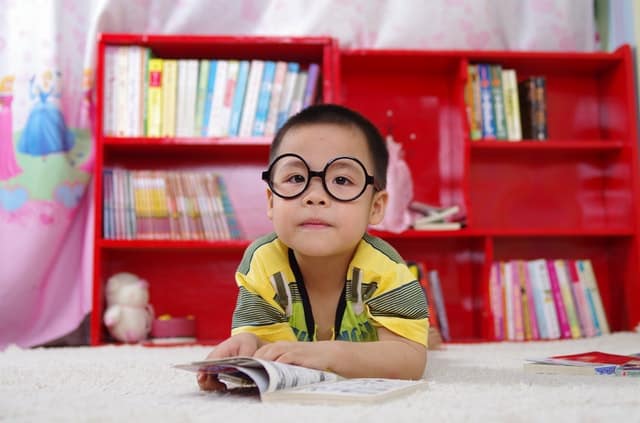According to the Australian Institute of Health and Welfare, 11% of children in Australia under the age of 14 years wear glasses. Many, however, go undetected which can lead to bigger problems in future, both visually and developmentally.
Depending on the age of your child, the warning signs that there are problems with their eyes might be a little harder to determine. For babies aged between 4 and 12 months, if they have trouble tracking or following an object as it moves in front of them, or if you can’t seem to get them to look you in the eye – get their eyes tested. If they are under 4 months, don’t worry too much. Most newborns have trouble focussing.
Once you child hits toddler or kindergarten age, the signs are more prominent. For children over 12 months, keep an eye out for these 8 warning signs that your kids have eye trouble:
- They tell you
This might seem an obvious one, but it could be a sign that you’re missing. Kids have fantastic imaginations which could get in the way of the symptoms. If your child repeatedly tells you that they have sore eyes, itchy eyes, that they feel sick or dizzy; you should take them seriously and head straight to the GP.
- They squint or sit too close to the TV
There is nothing more infuriating than walking into a room and you see your children sitting right on top of the TV. And while it can be habit, it could also be a sign that something is wrong. The best way to tell is to ask them to move back from the TV and watch to see if they squint. Sitting too close to the TV could be a simple sign of nearsightedness. Holding a book too close to their face is also a warning.
- They have sore eyes and rub them a lot
Young children tend to rub their eyes a lot when they are tired and this is only natural. But if you notice you child rubbing their eyes a lot when they have already had a big sleep, or if you notice they have redness in their eyes that doesn’t go away – you might consider an eye test. Other signs include pain and itchy eyes, pus or crust in either eye (could also be a sign of conjunctivitis but worth keeping a check on) and if they have water eyes.

- They have headaches
Headaches are an easy warning sign of eye troubles and a common complaint, particularly among school-age children. If your child is experiencing recurring headaches in a learning environment or while watching TV or reading – best to book an appointment to have their eyes tested.
- Their eyes don’t look right
The more obvious signs of eyesight problems are those you can see. This could include cross-eyes, if the eyes turn away from each other or don’t seem to focus well together. Check the colour of the pupil to make sure they are not white or grey, and look out for dropping eyelids. Eyes that flutter often could also be a sign, bulging eyes, a “lazy eye” or constant red rims around the eyes.
- Sensitive to light
Eyes that are sensitive to light are also worth testing and can be a sign of problems such as intraocular inflammation. If your child prefers to wear dark glasses, or they squint a lot when the sun comes up or a bright light is turned on, pay attention. If they do this continually, it’s best to have their eyes checked.
- They have trouble reading
If you have concerns about your child’s eyesight – watch them the next time they are reading. If they tilt their head to the side or forward, it could be a sign of imbalanced eye muscles. Other signs when reading could be that they blink more than usual, hold the book very close to their eyes or if they skip lines or words when reading sentences out loud. Most children love to read books, but if your child hates it and avoids reading at all costs, it could be their eyes.
- They find it hard to concentrate, easily distracted
Lack of concentration often leads to the child being seen as naughty, or rebellious, however there could be an underlying problem. If your child’s teacher finds it hard to keep their attention during class, book them in for an eye test to rule it out. This is actually a common early sign of eye problems – the child seems distracted, but really they just can’t see what they are doing and will become restless or frustrated.
What can you do about it?
Although some of the symptoms are easier to determine, children don’t always complain about sore eyes, or the dizziness they might feel. If you have any concerns about your child’s eyesight it’s imperative you take them for a screening. If their bad eyesight goes undetected, it will not only lead to health problems down the line, but will also lead to problems with schooling. Many schools around Australia offer free eye screens. However if yours doesn’t, it’s important you have their eyes checked regularly; particularly if you have any concerns.
Take your child to the local GP first and talk to them about getting your child tested. They will be able to give you information about the various eyesight problems they might face and recommendations on local optometrists you can take them to. Once you have a diagnosis it’s easy to take care of your child’s eyes either by purchasing glasses, or you might even buy contact lenses online, depending on their age and preferences.


